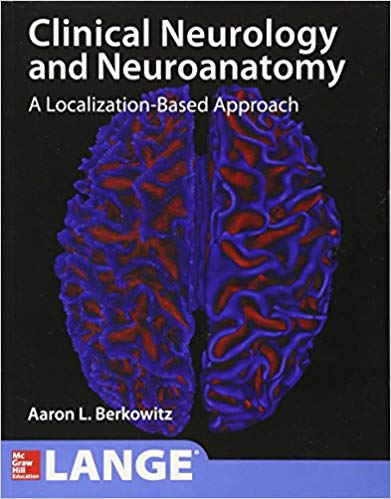
Publisher’s Note: Products purchased from Third Party sellers are not guaranteed by the publisher for quality, authenticity, or access to any online entitlements included with the product.
An engagingly written text that bridges the gap between neuroanatomy and clinical neurology
“One of the best modern outlooks on the pragmatic practice of neurology … far superior to existing books of its size and scope because of the thoughtfulness with which the knowledge about diseases and neurological conditions has been assembled … addressing almost every major point that is encountered on the wards and in the clinic.â€
From the Foreword by Allan H. Ropper, MD, Executive Vice Chair of Neurology, Brigham and Women’s Hospital; and Professor of Neurology, Harvard Medical School
Clinical Neurology and Neuroanatomy delivers a clear, logical discussion of the complex relationship between neuroanatomical structure and function and neurologic disease. Written in a clear, concise style, this unique text offers a concise overview of fundamental neuroanatomy and the clinical localization principles necessary to diagnose and treat patients with neurologic diseases. Unlike other neurology textbooks that either focus on neuroanatomy or clinical neurology, Clinical Neurology and Neuroanatomy integrates the two in manner which simulates the way neurologists learn, teach, and think.
Clinical Neurology and Neuroanatomy is divided into two main sections. In Part 1, clinically relevant neuroanatomy is presented in clinical context in order to provide a framework for neurologic localization and differential diagnosis. The diseases mentioned in localization-based discussions of differential diagnosis in Part 1 are then discussed in clinical detail with respect to their diagnosis and management in Part 2. Part 1 can therefore be consulted for a neuroanatomical localization-based approach to symptom evaluation, and Part 2 for the clinical features, diagnosis, and management of neurologic diseases.
FEATURES
• A clear, concise approach to explaining the complex relationship between neuroanatomical structure and function and neurologic disease
• Numerous full-color illustrations and high resolution MRI and CT scans
• Explanatory tables outline the clinical features, characteristics, and differential diagnosis of neurologic diseases and disorders
REVIEWS
"The high point of this book is the author’s ability to explain concepts logically and practically, using clear language that gets straight to the point, something that is often missing in other texts. This is exemplified in the author’s approach to explaining clinically relevant brainstem and cranial nerve anatomy in chapters 9 through 14." Emer R. McGrath, MB, PhD, review in Neurology 2017;88;e182
"The fact that [this book] was written by a single author is not only impressive, but also lends excellent consistency to the text, with emphasis on clinical pearls and the avoidance of minutiae. For example, the stroke chapter describes the role of the ABCD2 score, contains discussion of the difficult issue of when anticoagulation might occasionally be used in the acute setting, and describes the uncommon but important phenomenon of amyloid spells." Jus

